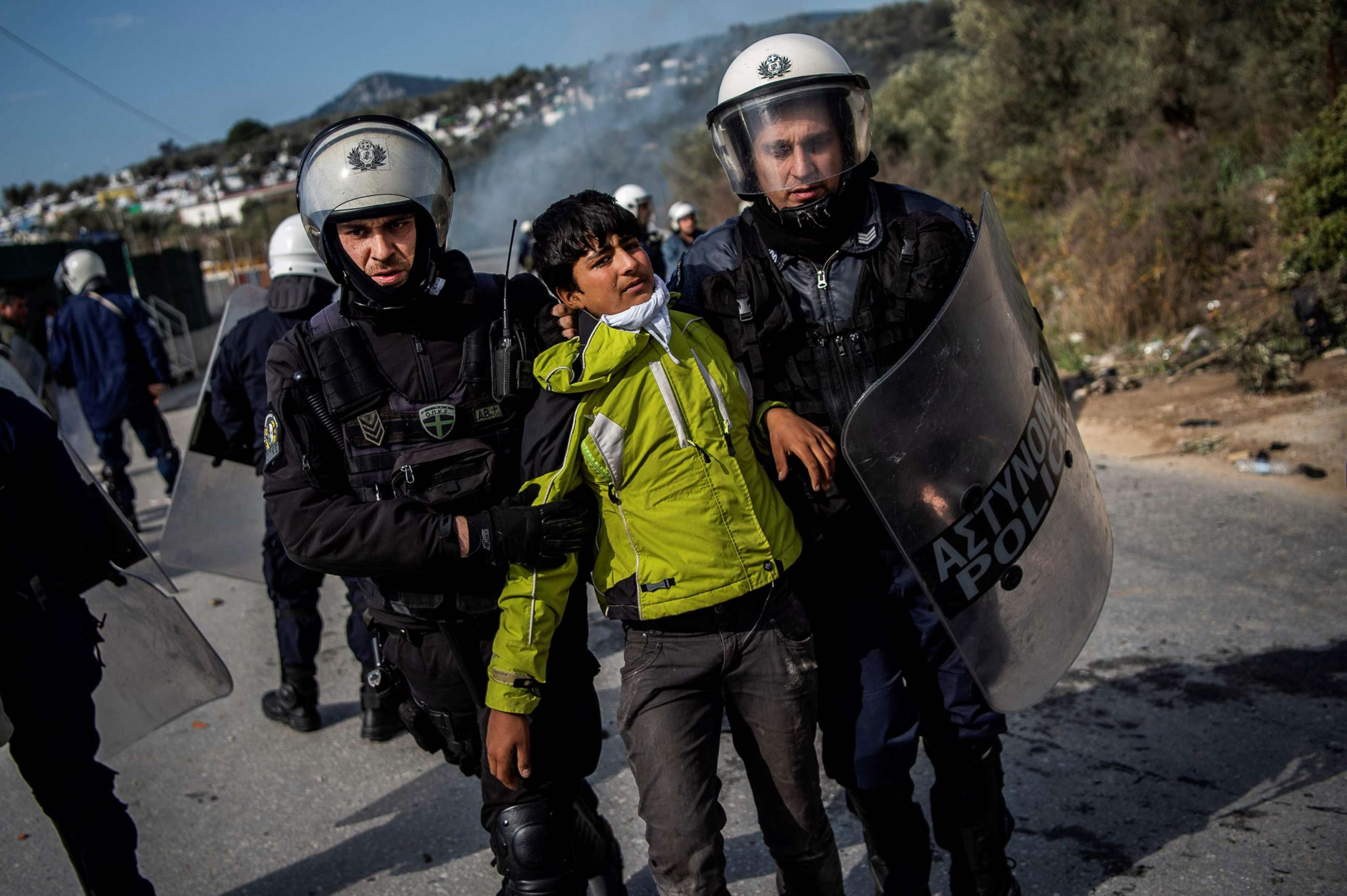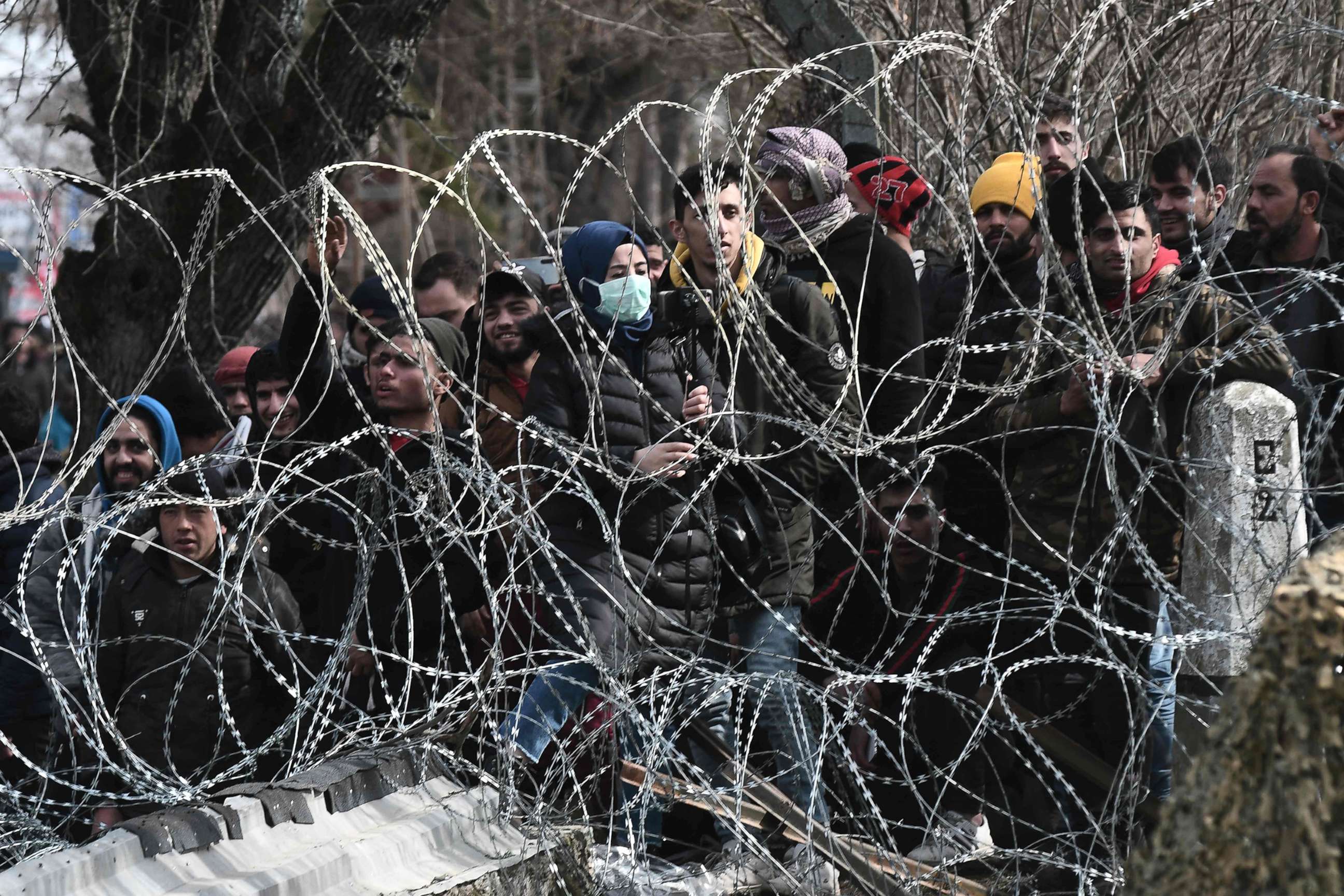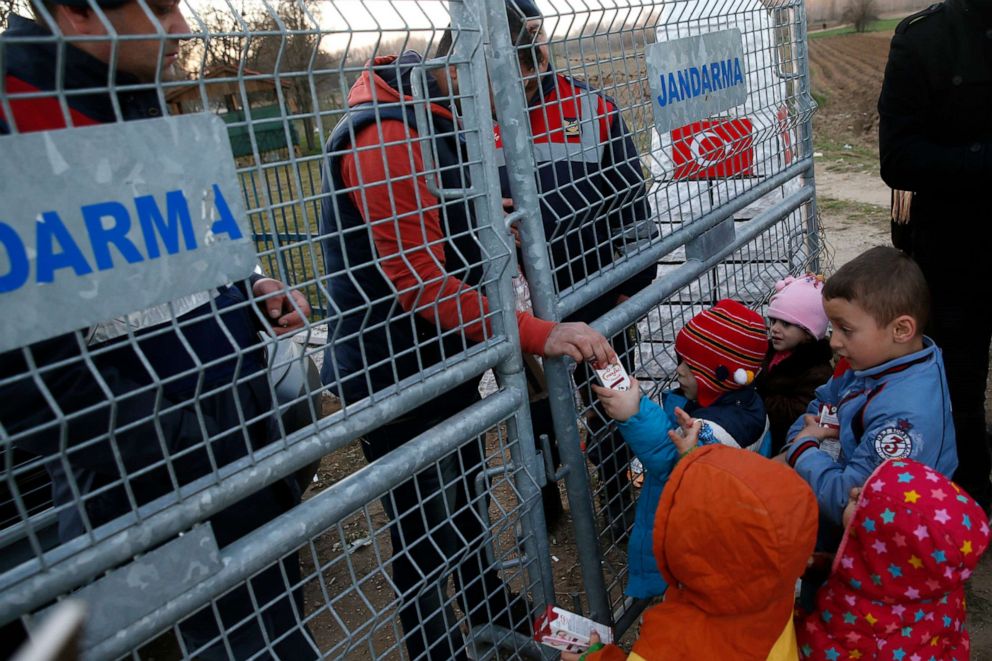Child dies as migrant and refugee crisis escalates on Greek-Turkish border
Chaos is brewing two days after Turkey opened its borders.
Chaos has been escalating on land and sea at the border between Greece and Turkey this week as refugees and migrants make a push into Europe, resulting in the death of at least one child.
Last week Turkey announced it was opening its borders, allowing refugees and migrants who were held there to move on toward Europe. The decision by Turkish President Recep Tayyip Erdogan has increased pressure on Europe to action.
Between Erdogan's announcement and Saturday evening, at least 13,000 people were observed by the International Organization for Migration (IOM) along the land border between Turkey and Greece.
In response, Greece sent military forces to the border and maintained that its border is closed. Greece also announced it would not be accepting asylum applications for a month from migrants who enter illegally.

This has led to violence at the land border, with Greek riot police physically blocking the passageway, including with tear gas.
People are also attempting to cross into Greece via the sea, which is where a child died when a boat carrying 48 people was deliberately capsized by its passengers, according to the Hellenic Coast Guard. The coast guard said in a statement that overturning a boat is "a commonly used tactic ... recommended by traffickers to instigate a rescue operation."
A police source on Lesbos told The Guardian that capsizing a dinghy is "customary" so the coast guard can rescue the people inside to be "allowed to come ashore."
After a coast guard rescue operation, two children were taken to the hospital in Lesbos. One was unconscious and "resuscitation efforts had no result," the coast guard said. The other child is "hospitalized and out of danger."
About 1,200 people arrived on the Greek islands of Lesbos, Chios and Samos -- which are very close to the Turkish mainland and already have overcrowded migrant and refugee camps -- between Sunday and Monday morning, according to the UNHCR, the UN Refugee Agency.
In a Monday statement, UNHCR called for "calm and an easing of tensions," saying nations "should refrain from the use of excessive or disproportionate force and maintain systems for handling asylum requests in an orderly manner."
"Greece, and other States on the EU external border, should not be left alone. Continued European resources, capacity and solidarity are needed to boost Greece's response," the statement said. "At the same time, international support to Turkey, which already hosts millions of refugees, as well as other countries neighboring Syria, must be sustained and stepped up."
Tensions are rising between Greece and Turkey, which already have a tense relationship after centuries of occupations and wars. This has included Greek officials accusing Turkish authorities and soldiers of helping push migrants toward the border, even by using wire cutters, drones and tear gas, according to The Associated Press.

Turkey and Greece have been bearing the brunt of this migrant crisis for years as people -- many from war-stricken Syria, but also many from Afghanistan, Iraq and other countries -- have been piling up in overcrowding camps and centers. Turkey hosts about 4.1 million refugees -- the largest number worldwide -- according to the UNHCR.
Countries in Europe have largely closed their borders to migrants and refugees, instead making agreements with the eastern Mediterranean nations to handle the situation. Erdogan, however, said the European Union was not honoring its side of a 6 billion euro deal made in 2016 that stipulated that Turkey would handle the people in exchange for financial aid, according to the AP.
"Denying asylum is not a solution. Refugees and all of those seeking asylum have a right to international protection and should be given assistance regardless of whether they are in Turkey or Europe," Karen Mets, Save the Children’s European Migration senior advocacy adviser, said in a statement Monday. "The European Union must take responsibility by stepping up its resettlement commitments and ensuring humanitarian aid can reach the most vulnerable."

"Most of those on the move are men but we are also seeing many family groups traveling with young children," IOM Turkey Chief of Mission Lado Gvilava said in a Sunday statement. "We're distributing meal boxes and other basic supplies in the city but the temperatures are dropping to nearly zero and the wind it quite bad so we're concerned about these vulnerable people who are exposed to the elements."
In its statement, the UNHCR noted that while this situation is "of concern," a potentially larger "humanitarian disaster" is brewing in northwest Syria -- particularly Idlib -- "for some 950,000 of internally displaced people."




